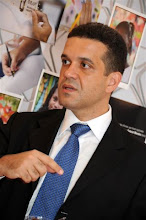Archive for March 2008
Abcesso Technology
To Abcesso's credit, they spend some time on the FAQ section of their website defending both ethanol and the AutoFFV. They claim that neither the fuel nor the product will do any damage to your car. They also visit the ol' cold start problem and say that the system software taps the temperature sensor and adjusts accordingly, so no issues should arise. As for the dashboard warning light problem they say that the "'check engine light' in Dodge/Chrysler vehicle will not occur with the AutoFFV system." Not sure why they don't mention Ford, as it's their flex-fuel cars which are currently under the magnifying glass of the NHTSA and FTC.
In any case, from what I can tell, very little has been done to address the use of ethanol blends as high as E85 in modern engines that weren't designed for them. Most reports I found discuss the benefits and safety of E10 while disregarding any blend much higher. Perhaps, we'll have to wait and see.
Abcesso Exp/Imp.
Av. Alfredo Baltazar da Silvera - Recreio dos Bandeirantes
27122790-710 RJ - Rio de Janeiro - Brasil
Tel: + 55 21 3521-7216
Skype: abcesso
Center of Excellence in Advanced Technologies
To bring technological innovation for the benefit of enterprises through a co-operative effort with universities and R&D Centers, is the CETA SENAI Mission, thus promoting and contributing to the technological and social development of the state o Rio Grande do Sul.
The goal is to implement a paradigm changing in the matter of applied research to the industry, based in the Fraunhofer model, which promotes the integration of science and technology institutions with the industry needs.
The CETA SENAI -RS project is inserted in the agreement between Brazil and Germany about co-operation in applied reasearch and technological development between Universities and R&D Institutions from both countries, in force since 1969. In march of 1999, a Joint Commitee of Scientific and Technologic Cooperation has approved and considered as a priority project the colaboration between RS and FhGin technologic research.
The concept of CETA SENAI -RS has been developed and continuously improved over the last 9 years. It is based on performed industrial and R&D surveys that analysed the industrial demands and the academic capacities for technological innovation in RS. Currently, CETA SENAI performs over 21 innovation projects with applied research projects, technology transfer, and national and international R&D co-operations.
CETA SENAI-RS
Av. Assis Brasil 8450 - 1º
Porto Alegre - RS - Brazil
CEP: 91140-000
Phone: +55 51 3347
FAX: +55 51 3364
E-mail: ceta-rs@ceta-rs.org.br
Petrojarl Cidade de Rio das Ostras

Betting the fazenda
Mar 6th 2008 SÃO PAULO
From The Economist print edition
SETTLE down at one of São Paulo's sushi bars and before long you will overhear a discussion about a start-up business making energy from obscure weeds, or some other bright idea for relieving members of the country's growing middle class of their disposable income. A field study of this kind displays a strong sample bias, but the point is clear: Brazil does not lack go-getters. Yet according to a more thorough survey backed by the International Finance Corporation (IFC), a sister organisation of the World Bank, Brazilian entrepreneurs are a strikingly different breed to their peers in Russia and China.
Overall, some 82% of entrepreneurs in all three countries came from families with at least one other entrepreneur. They also tended to be taller than the average. But there the similarities end. In particular, Brazilian entrepreneurs seem to have a much lower appetite for risk.
The researchers measured this by offering interviewees hypothetical bets of varying risk and reward, and offering a choice between cash now or more money at a later date. The entrepreneurs in the sample were no more risk-taking than other Brazilians, and were also more likely to retire if offered a windfall than their peers elsewhere.
Perhaps this lack of staying power is because there are many more pleasant things to do in Brazil than work. But why should Brazilians be so risk-averse? Simeon Djankov, one of the study's authors, hypothesises that in real life Brazilian entrepreneurs run bigger risks than those elsewhere. Starting a business takes 152 days and requires 18 different procedures, according to the IFC's annual worldwide “Doing Business” study. It takes 2,600 hours for a medium-sized business to keep up with its taxes each year. The same hypothetical business would pay 69% of its second-year profits in tax, if it played by the rules and did not receive special tax breaks.
Brazilian entrepreneurs show an unsurprising willingness to bend the law. “Essentially what determines good entrepreneurship in Brazil is the ability to navigate around the bureaucracy,” suggests Mr Djankov. Eduardo Giannetti da Fonseca, an economist, concurs: “If Bill Gates had started Microsoft in a garage in Brazil, it would still be in the garage.” Harder to explain than why Brazil's entrepreneurs are as they are is why they exist at all.




